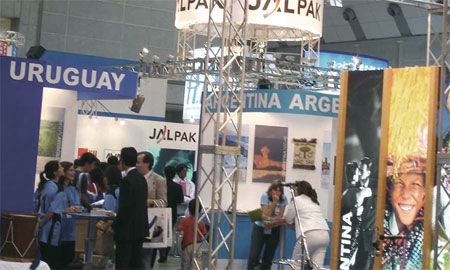The goal today is to diversify its production, as well.
Where Roberto Kreimerman, Minister of Industry, Energy, and Mines, would like to see this is in value added industries.
“Uruguay has successfully lowered its levels of poverty and social exclusion, and the quality of life has improved. But it still has a traditional and vulnerable productive structure, specialized in basic products with low value addition,” he explains. “We’ve made a lot of progress, but we’ve still not got enough development of medium and high-technology products.”
Although the traditional sectors (meat, dairy, and rice, for example) still drive the economy’s growth, the government is counting on investments in innovation-based sectors (ie pharmaceuticals, software), as well as in telecommunications and transportation infrastructures, renewable energies, the electricity sector, and the naval industry for greater development. According to Mr. Kreimerman, these are the fields for which Uruguay has highly-trained human capital and a very favorable investment regime, and not to mention a recently inaugurated world-class and environmentally friendly science park. Parque de las Ciencias is located just a few minutes’ drive from Montevideo’s international airport.
In the realm of renewable energy, the minister says that Uruguay’s natural resources offer excellent potential and has formed a kind of exchange program with the U.S. for scientific and technological cooperation.
Additionally, Uruguay is exploring its oil & gas potential and has awarded two zones to a consortium comprising Petrogas, Repsol, and Galp. Two more tenders will be available this year. If these concessions prove successful, Uruguay’s naval industry will undoubtedly see fantastic growth.
Sectorial growth and economic diversification must go hand-in-hand with infrastructure development, as money-earning exports require an outlet whether this be by land, air, or sea.
Uruguay’s government is therefore stepping up road and rail improvements, and sea and airport modernization projects. In order to prevent current infrastructure programs from being victims of politics, Enrique Pintado, Minister of Transport and Public Works, says his ministry is considering signing a document in which it requests that the International Development Bank (IDB) act as a catalyst in agreeing upon a state policy independent of the political party that may be in government.
“One of our strategic objectives is to turn the country into a regional logistical hub by 2030,” says Mr. Pintado. “The important thing is not just knowing where we want to arrive, but how we’re going to get there and convert Uruguay into a logistical point.”
The smallest country in Mercosur, Uruguay has a relation of cooperation and competition with Argentina. Rather than fighting for pole position, the government has proposed to the southern common market that in the future the two countries “jointly administer the deep-water ports, replacing competition with complementation and focusing on the specialization of each of the countries,” explains Mr. Pintado.

0 COMMENTS